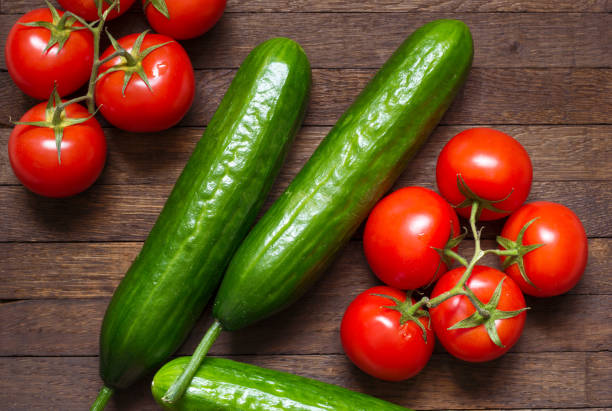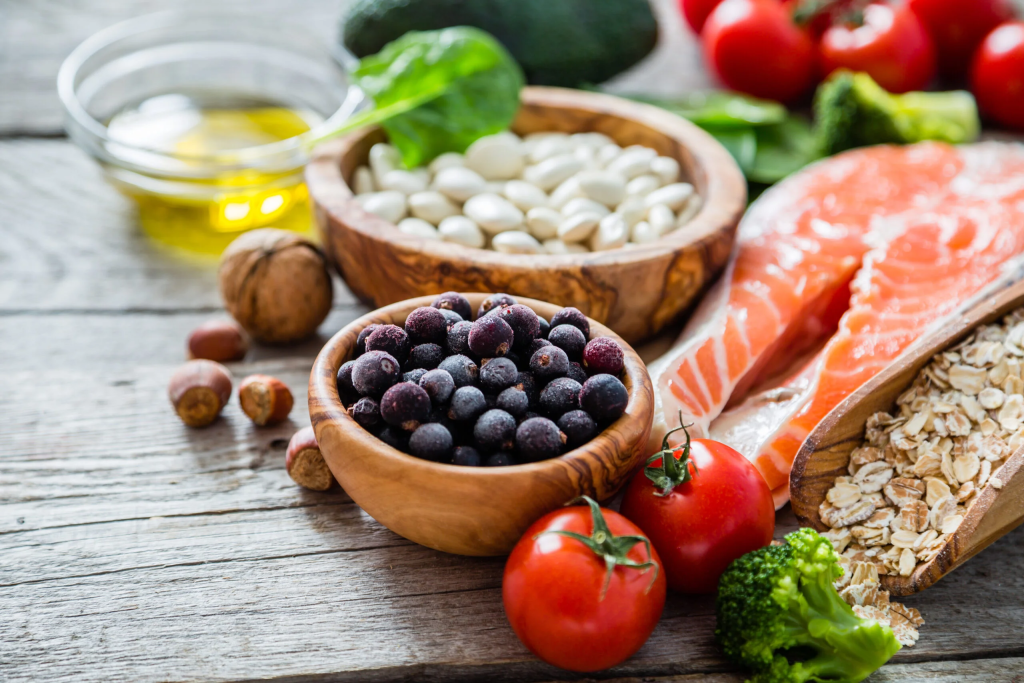In the world of health and wellness, advice on what foods to eat and avoid can feel like a never-ending stream of conflicting information. Among these concerns are warnings about certain food combinations that allegedly “create toxins” or even cancer-causing substances when eaten together. While some claims may be exaggerated or unsupported by scientific evidence, it’s essential to examine these warnings and understand the risks associated with certain combinations. Let’s explore three specific food pairings that some experts suggest you avoid, and why maintaining a balanced diet is crucial.
1. Soybeans and Cruciferous Vegetables: A Risk to Thyroid Health?

Soybeans and cruciferous vegetables (such as broccoli, cabbage, and cauliflower) are nutritional powerhouses, offering a range of health benefits. However, when combined, there are concerns about their potential impact on thyroid function.
Understanding the Goitrogenic Effect
Cruciferous vegetables contain compounds called goitrogens, which can interfere with thyroid function by blocking iodine absorption. Since iodine is essential for producing thyroid hormones, a deficiency can lead to hypothyroidism. Soybeans, on the other hand, contain isoflavones, which are known to affect thyroid hormone production, particularly in those with existing thyroid issues.
Are These Concerns Valid?
For most people, eating soybeans and cruciferous vegetables together in moderate amounts is unlikely to cause any harm. Problems generally arise from excessive consumption, where the goitrogenic effects may become significant. Additionally, cooking these vegetables can reduce their goitrogenic properties, making them safer for those with thyroid concerns. If you have thyroid issues, it’s best to consult a healthcare provider before regularly consuming large quantities of these foods together.
2. Alcohol and Grilled Meats: A Potentially Dangerous Combination
Few things are as satisfying as a summer barbecue, with a cold drink in hand and the grill sizzling away. However, doctors have raised concerns about the combination of alcohol and overcooked grilled meats, suggesting that this pairing could increase the risk of cancer.
The Formation of Harmful Compounds
When meat is cooked at high temperatures, such as on a grill, it produces compounds called polycyclic aromatic hydrocarbons (PAHs) and heterocyclic amines (HCAs). These substances are known carcinogens, meaning they have the potential to cause cancer. Alcohol, when consumed with these grilled meats, may increase the risk by making it easier for the body to absorb these compounds.
How Alcohol Plays a Role
Alcohol can act as a solvent, which helps your body absorb PAHs and HCAs more efficiently. This heightened absorption could potentially raise the levels of these carcinogens in your system, increasing the risk of damage to cells and DNA. The occasional barbecue isn’t likely to be an issue, but consuming grilled meats with alcohol regularly may contribute to long-term health risks.
3. Tomatoes and Cucumbers: A Digestive Dilemma?

Tomatoes and cucumbers are a classic pairing in salads worldwide, but there are claims that this combination may negatively impact digestion. Some people believe that mixing these two vegetables creates digestive disturbances or inhibits nutrient absorption.
The Basis of the Claim
The argument against tomatoes and cucumbers together stems from the idea that they have different digestion times and pH levels. Proponents of food combining theory suggest that tomatoes, which are acidic, and cucumbers, which are more alkaline, can lead to digestive discomfort when eaten together. The conflicting pH levels are believed to cause bloating, gas, or reduced nutrient absorption in the stomach.
What Does Science Say?
There is currently no strong scientific evidence supporting this claim. While food combining principles are popular in certain health communities, they are not widely endorsed by nutrition experts. Tomatoes and cucumbers both provide essential vitamins and antioxidants, and they can be part of a healthy, balanced diet. If you experience digestive issues, it may be worth experimenting with food combinations to see what works best for your body, but for most people, there is no need to avoid this duo.
Maintaining a Balanced Diet: Key to Reducing Risks

While these food combinations may raise some concerns, it’s essential to remember that a balanced diet is your best defense against potential health risks. Here are some tips to maintain a balanced and safe diet:
1. Moderation is Key
The principle of “everything in moderation” is particularly relevant when considering potential food risks. Most harmful effects are linked to excessive consumption rather than occasional indulgence. For example, enjoying grilled meat and a drink at a summer cookout is unlikely to have a lasting impact, but consuming these foods in large amounts regularly could increase health risks.
2. Focus on Variety
Eating a wide range of foods ensures you’re getting a balanced intake of nutrients. A varied diet supports overall health, reduces the likelihood of nutrient deficiencies, and minimizes the risks associated with any single food combination. Incorporating fruits, vegetables, whole grains, lean proteins, and healthy fats will support your body’s needs and provide a buffer against potential dietary concerns.
3. Use Cooking Techniques That Reduce Risks
Simple changes in cooking methods can help minimize the formation of harmful compounds. For example, when grilling meat, avoid direct flames and opt for lower temperatures. You can also marinate meats before grilling, as some studies have shown that marinades can reduce the formation of HCAs and PAHs. Additionally, steaming cruciferous vegetables can reduce goitrogen content, making them safer for thyroid health.
Why It’s Important to Rely on Evidence-Based Information

With so many diet fads and warnings circulating online, it’s essential to base dietary choices on reliable information. Many claims about food combinations causing toxicity or cancer lack scientific support and can be exaggerated. When in doubt, consult with a registered dietitian or healthcare provider who can offer personalized advice based on current research.
The idea that specific food combinations can create toxins or cause cancer often falls into the category of health myths. While there may be some truth to certain claims, the science is often not as clear-cut as it seems. Rather than stressing over every meal pairing, focus on overall dietary habits, emphasizing balance, variety, and nutrient-dense foods.
Conclusion: Eating Mindfully for Better Health
While some food combinations may have potential risks, these risks are generally related to excessive consumption or specific health conditions. For most people, enjoying a balanced and varied diet that includes occasional treats is perfectly safe. Rather than worrying about every possible food interaction, emphasize whole, unprocessed foods and practice moderation.
By being informed and mindful about what you eat, you can enjoy a wide range of foods without fear. Remember, no single meal or food combination is likely to determine your overall health. Focus on consistency, balance, and making educated choices to support long-term wellness. And if you have specific health concerns, don’t hesitate to reach out to a healthcare professional who can help guide you on your path to a healthier life.


